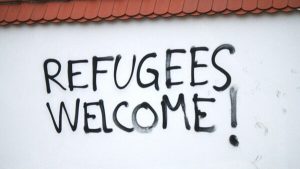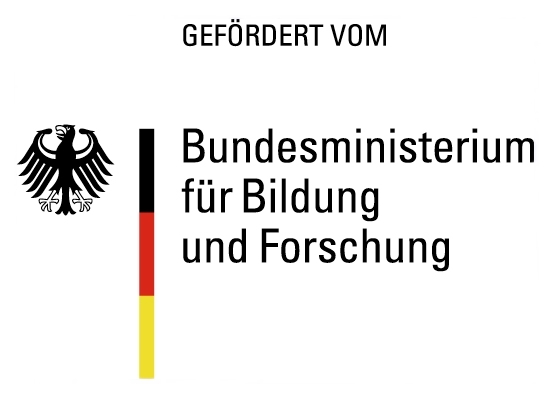english version below
Solidarität mit Geflüchteten (Geschichte / Soziologie)
Das historisch-soziologische Projekt zielt auf die Untersuchung solidarischen Handelns in der Hilfe für Geflüchtete. Es fragt nach den sozialen und motivationalen Bedingungen, unter denen sowohl staatliche Unterstützung als auch zivilgesellschaftliche Hilfe für geflüchtete Menschen entsteht. Im Fokus stehen dabei besonders auch vulnerable Personengruppen wie Kinder und Jugendliche. Zugleich gilt die Aufmerksamkeit den jeweiligen Kooperationsstrukturen und Konfliktdynamiken zwischen zivilgesellschaftlichen Organisationen und staatlichen Institutionen. Welche Vorstellungen von Schutzbedürftigkeit lagen den jeweiligen Hilfsprojekten zugrunde? Wie spiegelten oder veränderten sie herrschende Normen gesellschaftlicher Ordnung, besaßen sie einen politischen Gestaltungsanspruch? Welche inner- und interorganisationalen Spannungen und Widersprüche offenbarten sich im Prozess der Hilfeleistung? Und inwiefern wurde den Adressat*innen der Hilfe eigene Handlungsfähigkeit zugesprochen, welche Autonomieansprüche konnten diese in der Unterstützungsbeziehung für sich reklamieren und durchsetzen? In diesem Sinne rekonstruieren die beiden Projekte eine Sozial-, Erfahrungs- und Wissensgeschichte transnationaler Praktiken der Solidarität.
Flüchtende Kinder und Jugendliche im 20. Jahrhundert
Bearbeiterin:
Sophia Dafinger, Universität Augsburg
sophia.dafinger@philhist.uni-augsburg.de
Flüchtende Kinder und Jugendliche sind kein Phänomen alleine der Gegenwart, sondern prägen die gesamte Geschichte von Flucht und Migration im 20. Jahrhundert. Dass Minderjährige besonders schutzbedürftig sind, war bereits 1924 Gegenstand internationaler Erklärungen, aber Reichweite und Ausmaß des Schutzes blieben umstritten. Das Projekt untersucht den veränderten nationalen wie internationalen Umgang mit Minderjährigen auf der Flucht und richtet seinen Blick auf solche Formen zivilgesellschaftlicher Hilfe, die sich im Umgang mit Kindern und Jugendlichen herausbildeten. Die Erfahrungskontexte waren sehr unterschiedlich: Flucht vor den Hungerkatastrophen des 20. Jahrhunderts gehörte ebenso dazu wie der Versuch gerade auch jüdischer Familien, dem Verfolgungsapparat des Nationalsozialismus zu entkommen – in Deutschland wie in den besetzten Gebieten.
Die Geschichte der organisierten Auswanderung direkt aus dem Deutschen Reich und ab 1939 aus den nach Kriegsbeginn unsicher gewordenen Nachbarländern mithilfe sogenannter „Kindertransporte“ spiegelt eine breite institutionalisierte Helferstruktur, in Großbritannien ebenso wie in den Niederlanden, Belgien, Frankreich und auch den USA.
Die Aufnahme von Flüchtlingen wurde in der diplomatischen und medialen Kommunikation häufig als Akt der Solidarität mit Opfern und Verfolgten von Unrechtsregimes gewertet – verweigerte Hilfe hatte aber während des Krieges keine unmittelbaren Auswirkungen auf das internationale Ansehen. Die Untersuchung geht über die Zäsur des Jahres 1945 hinweg, um Auskünfte über Kontinuitäten und Brüche entsprechender Praktiken zu erhalten und wird einen Schwerpunkt in der deutsch-französischen Geschichte haben. Von kurzfristiger Hilfe im krisengeschüttelten Europa über die Entkolonialisierungskriege in Algerien und Nordafrika bis zur institutionell fest verankerten weltweiten Tätigkeit von UN-Organisationen veränderten sich Antriebe, Formen und Folgen solidarischer Praktiken. Sie stehen im Mittelpunkt der Untersuchung.
„Willkommenskultur“ für Geflüchtete in München 2015ff.
Projektbearbeiterin:
Eva Fleischmann, LMU München
E.Fleischmann@soziologie.uni-muenchen.de
Im September 2015 kommen innerhalb kürzester Zeit mehrere Zehntausend Geflüchtete am Münchner Hauptbahnhof an – diese Zeit gilt als Geburtsstunde der deutschen „Willkommenskultur“. Um die ankommenden Menschen grundlegend zu versorgen, bilden sich vor Ort spontane und vielfältige Unterstützergemeinschaften von Einzelpersonen und Organisationen aus – die Bilder gingen um die Welt. Auch wenn aufgrund von Gesetzesänderungen im Asylrecht und eines verschärften europäischen Grenzschutzes die Flüchtlingszahlen deutlich zurückgegangen sind und die Geflüchteten mittlerweile dezentral in Aufnahmeeinrichtungen in Bayern und anderen Bundesländern verteilt wurden, sind die zivilgesellschaftlichen Unterstützungsstrukturen aber größtenteils erhalten geblieben bzw. wurden sie in Teilen erweitert, institutionalisiert und professionalisiert oder schlugen sich in Start-Ups und anderen Organisationsformen nieder.
Das Unterprojekt zielt auf eine Sozial-, Erfahrungs- und Wissensgeschichte der Hilfe für Geflüchtete in der jüngsten Vergangenheit – als lebendige Zeitgeschichte lokalen Unterstützungshandelns im transnationalen Kontext. Im Mittelpunkt des Interesses steht dabei das Zusammenspiel von Verwaltungshandeln und zivilgesellschaftlichem Engagement. Gefragt wird nach den Motiven und Beweggründen solidarischen Handelns der engagierten Menschen, nach möglichen Konflikten zwischen öffentlicher und privater Hilfe sowie – soweit es das empirische Beobachtungsfenster von wenigen Jahren zulässt – nach einem möglichen Gestaltwandel zivilgesellschaftlicher Hilfe im Zeitverlauf. Besondere Aufmerksamkeit gilt dabei dem Sachverhalt, ob und inwiefern sich der Charakter nicht-staatlicher Hilfsaktivitäten durch deren Verstetigung, Institutionalisierung, Professionalisierung und ggf. öffentliche Subventionierung – also letztlich durch ihre Inkorporierung in das Netz öffentlicher Hilfen – verändert.
Koordination:
Prof. Dr. Dietmar Süß, Universität Augsburg
Solidarity with Refugees (History / Sociology)
The historical-sociological project aims at investigating solidarity action in aid for refugees. It examines the social and motivational conditions under which both state support and civil society aid for refugees emerge. The focus is particularly on vulnerable groups such as children and young people. At the same time, the project pays attention to the respective cooperation structures and conflict dynamics between civil society organizations and state institutions. What were the underlying ideas of vulnerability in the respective aid projects? How did they reflect or change dominant norms of social order, did they possess a claim to political design? Which internal and inter-organisational tensions and contradictions manifested themselves in the process of helping? To what extent were the addressees of the aid given their own ability to act and which claims to autonomy could they make and enforce for themselves? In this sense, the two projects reconstruct a social, experience and knowledge history of transnational practices of solidarity.
Unaccompanied Minors in the 20th Century
Contact: Sophia Dafinger, Augsburg University
sophia.dafinger@philhist.uni-augsburg.de
Fleeing children and adolescents are not a phenomenon of the present alone but shape the entire history of flight and migration in the 20th century. The particular need for protection of minors was the subject of international declarations as early as 1924, but the scope and extent of protection remained controversial. The project examines the changed ways of dealing with fleeing minors at national and international level and focuses on forms of civil society assistance that have emerged in dealing with children and young people. The contexts of experience were diverse: flight from the famines of the 20th century was just as much part of this as the attempt of Jewish families to escape the persecution apparatus of National Socialism – in Germany as well as in the occupied territories. The history of organized emigration by means of so-called ‘child transports’ – both directly from the German Reich and since 1939 also from neighbouring countries, which had become insecure after the beginning of the war – reflects a broad institutionalized helper structure, in Great Britain as well as in the Netherlands, Belgium, France and the USA.
In diplomatic and media communication, receiving refugees was often seen as an act of solidarity with victims and persecuted persons – but refusing aid had no direct impact on international prestige during the war. The study will focus on German-French history and go beyond the caesura of 1945 in order to analyse continuities and changes in those practices. From short-term aid in crisis-ridden Europe to the decolonisation wars in Algeria and North Africa to the institutionally firmly anchored worldwide activities of UN organisations: The motivations, forms and consequences of solidarity practices have varied. They are the focus of the investigation.
‘Welcome Culture’ for Refugees in Munich since 2015
Contact: Eva Fleischmann, LMU Munich
E.Fleischmann@soziologie.uni-muenchen.de
In September 2015, several tens of thousands of refugees arrived at Munich Central Station within a very short time – this time is regarded as the birth of German ‘Welcome culture’. In order to provide basic care for the arriving people and to fight for their rights, spontaneous and diverse support communities of individuals and organizations took shape on site – the pictures went around the world. Since then the number of refugees has fallen significantly as a result of changes in asylum law and stricter European border protection, and the refugees have been distributed in a decentralized way to reception centres in Bavaria and other federal states. Nevertheless, most of the civil society support structures have been retained or expanded, institutionalised and professionalised or reflected in start-ups and other forms of organisation. The subproject aims at a social, experience and knowledge history of helping and activist engagement for refugees in the recent past – as a living contemporary history of local support action in a transnational context. The focus of interest is on the cooperation between administrative action and civil society commitment. The project examines the motives and motivations of committed people to act in solidarity, possible conflicts between public and private aid and – as far as the empirical observation window of a few years permits – possible changes in the shape of civil society and their actions over time. Special attention is paid to the fact whether and to what extent the character of non-state aid activities is changed by their perpetuation, institutionalisation, professionalisation and, where appropriate, public subsidization – i.e. by their incorporation into the network of public aid.
Coordination:
Prof. Dr. Dietmar Süß, Augsburg University


